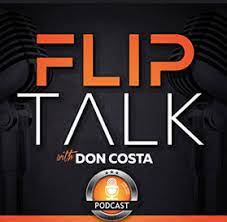|
Check out our new audio content!
Getting your Trinity Audio player ready...
|
Photo by Olya Kobruseva from Pexels
By Rick Tobin
Between 2006 and 2014 during the depths of the Credit Crisis, there were 10 million Americans who lost their home to foreclosure over this 8-year span. Within just a few months in 2020 (March to May), we’ve seen almost 50% of that 10 million foreclosure number with at least 4.7 million mortgages delinquencies. For most Americans, the vast majority of their family’s overall net worth is tied directly to the equity in their home rather than in any stocks or other investments.
The good news is that national existing home sales climbed an all-time record +20.7% month-over-month increase between May and June 2020 partly due to fixed mortgage rates repeatedly reaching all-time record lows. In spite of record unemployment claims filings, home prices are still at or near all-time record highs in most major metropolitan regions.

In spite of one of the most chaotic years ever in world history, national home equity grew $1 trillion in value due to the combination of historic all-time low 30-year fixed rates and unusually low home listing inventory. For example, there were 1.42 million existing homes on the market nationwide at the end of October 2020, which was a 19.8% drop compared with one year earlier. Some analysts claim that the median home price nationwide increased by a 16% year-over-year growth during the same October 2019 to October 2020 time range. In many metropolitan regions, listed homes are selling within one to two weeks.
The primary difference between now and the last negative economic time period is that more homeowners today have much more equity in their homes than back in the 2008 to 2012 years. As such, any distressed homeowners who need to sell should be able to do it rather quickly due to the strong buyer demand and record low mortgage rates.
Homeowners, Tenants, and the CARES Act
Back on March 27, 2020, the CARES (Coronavirus Aid, Relief, and Economic Security Act) was passed by Congress as a response to the worsening US and global economy due to the fallout from the ongoing virus pandemic designation. Subsequent to the passage of the CARES Act, governors in states like California and elsewhere signed mandates or legal orders that attempted to prohibit lenders from foreclosure on delinquent homeowners and landlords from evicting tenants through the end of December 2020 or January 2021 (dates subject to change).

Photo by Joshua Miranda from Pexels
Additionally, the CDC (Center for Disease Control) issued their own guidelines that referenced the possibility of civil fines and/or criminal prosecutions for any landlord who attempted to evict a delinquent tenant before the end of December 2020 partly due to claims that it may increase potential health risks for the general public. In US history, this may be the very first time that the CDC has claimed authority to directly affect landlords and tenants. In recent times, these foreclosure or eviction moratoriums have been extended to January 2021 or beyond. At a later date, these moratoriums may continue to be extended, but few people are fairly certain at this point.
Risks and Financial Opportunities
Let’s take a look below at the potential risks, market changes, and financial solutions for homeowners, landlords, tenants, and real estate professionals due to Covid-19’s impact on the economy:
* Adverse Market Fees: As of December 1st, 2020, the largest secondary market investors, Fannie Mae and Freddie Mac, are scheduled to assess a 0.50% “adverse market fee” to at least all refinance (and possibly purchase) loans that are designated as “conforming” fixed mortgage rates. Generally, these are some of the lowest 30-year and 15-year fixed mortgage rates in the nation for the most creditworthy borrowers with usually very solid FICO credit scores. This market fee adjustment may increase the overall 30-year fixed rate by anywhere between .125% and .25%, depending upon the lender.
* Non-conforming mortgage loans: Borrowers may consider easier qualifying non-conforming loans that aren’t purchased in the secondary markets by Fannie or Freddie which include: FHA (FICO credit score allowances in the 500 range), VA, Non-QM (Qualified Mortgage), and Private Money that may allow much higher debt-to-income ratio allowances and/or no formal income documentation requirements such as with Stated Income products (bank statements or profit and loss statements in lieu of W2s or tax returns).
* Forbearance agreements: The lender agrees to postpone or delay their foreclosure actions with the delinquent borrower. Sometimes, these foreclosure postponements may last months or years.

* Deferment: The lender agrees with the borrower’s request to delay or defer their delinquent payments until a later date. In some cases, the late payments and penalties are added years later when the loan may become all due and payable.
* Loan modification: The lender or mortgage loan service company agrees to reduce the existing interest rate and/or monthly payment amount so that the mortgage is more affordable as a way to avoid foreclosure.
* Loan repayment plan: Both the lender and borrower mutually agree to add unpaid delinquent payments and late fees to the existing mortgage which may slightly increase their monthly payments or increase the loan term to give the borrower more time.
* Reinstatement: After the borrower and lender agree to modify the monthly payments to avoid foreclosure, the loan is removed from foreclosure status and reinstated in “good standing.”
* Seller-financed sales: If the homeowner needs a quick sale to a new buyer who can effectively take over his monthly mortgage payments and give the seller some much needed cash, the seller may consider creating some type of wraparound mortgage {i.e., contract for deed or all-inclusive trust deed (AITD)} or “subject-to” property transfer in which the buyer receives the deed to the property that is “subject-to” the existing mortgage still secured by the property.
* Short sale: If and when the mortgage debt is greater than the current market value for the property (aka “upside-down” mortgage), the homeowner may consider contacting an experienced local Realtor who can help negotiate a discounted mortgage payoff with the lender when they find a qualified new buyer.

* “Cash for Keys”: During the depths of the last major national foreclosure crisis between 2009 and 2013 especially, lenders were offering delinquent homeowners upwards of several thousand to $25,000 + to vacate the home while not damaging it or removing appliances. Quite often, the homeowner hadn’t made a mortgage payment for months or years up until this “Cash for Keys” offer. For many lenders, this cash payment to struggling homeowners was considered more affordable for the lender than fighting the homeowner for months or years longer.
* Bankruptcy: For homeowners who are days or weeks away from losing their home at the final lender auction sale, they may consider filing Chapter 7 (complete liquidation of most debts) or Chapter 13 bankruptcy (a longer term workout payment plan) either on their own with online companies for just a few hundred dollars or with the assistance of an experienced bankruptcy attorney. The bankruptcy filing could delay the foreclosure auction date by weeks, months, or longer. Please seek quality legal assistance first.
* Foreclosures: Please note that the typical foreclosure date timeline is close to four months from the start to finish. In California (a trust deed or non-judicial foreclosure state), the lender may first issue some warning letters to the delinquent mortgage borrower up to several months.
The lender will then file a Notice of Default to start the foreclosure process. Ninety (90) days later, the lender will file a Notice of Trustee’s Sale while advertising one day a week in a local legal newspaper for three consecutive weeks. If the loan hasn’t been cured or paid with some new installment or workout plan, the lender could hold the final Trustee’s Sale (or auction) approximately 120 days (4 months) after the Notice of Default was filed.
In other states that are considered judicial foreclosure states, the foreclosure timelines may be similar or much longer, depending upon the caseload for nearby local courtrooms.
Focus on Opportunities, Not Obstacles

It’s your ongoing perceptions of these negative financial, health, and overall national and global situations that may best determine whether you succeed or not. “Truth” is just your personal perspectives based upon life experiences. In the well-known Five Stages Of Grief description about emotional reactions to traumatic and painful experiences which was first written by Elizabeth Kübler-Ross and David Kessler about the fear of death, the five stages are described as:
● Denial
● Anger
● Bargaining
● Depression
● Acceptance
The faster that you get through the first four states of grief, the faster that you will get to the “Acceptance” stage and your focusing on the potential opportunities and solutions.
What we tend to focus on in life is usually what we end up with later because our minds are like giant magnets, for better or worse. Please keep your eyes on your personal goals because the solutions will appear sooner rather than later if you’re willing to focus with 20/20-like perfect vision. For many real estate investors, they will find incredible buying opportunities in 2021 and beyond if they keep a positive mindset.

Rick Tobin
Rick Tobin has a diversified background in both the real estate and securities fields for the past 30+ years. He has held seven (7) different real estate and securities brokerage licenses to date, and is a graduate of the University of Southern California. Rick has an extensive background in the financing of residential and commercial properties around the U.S with debt, equity, and mezzanine money. His funding sources have included banks, life insurance companies, REITs (Real Estate Investment Trusts), equity funds, and foreign money sources. You can visit Rick Tobin at RealLoans.com for more details.




















